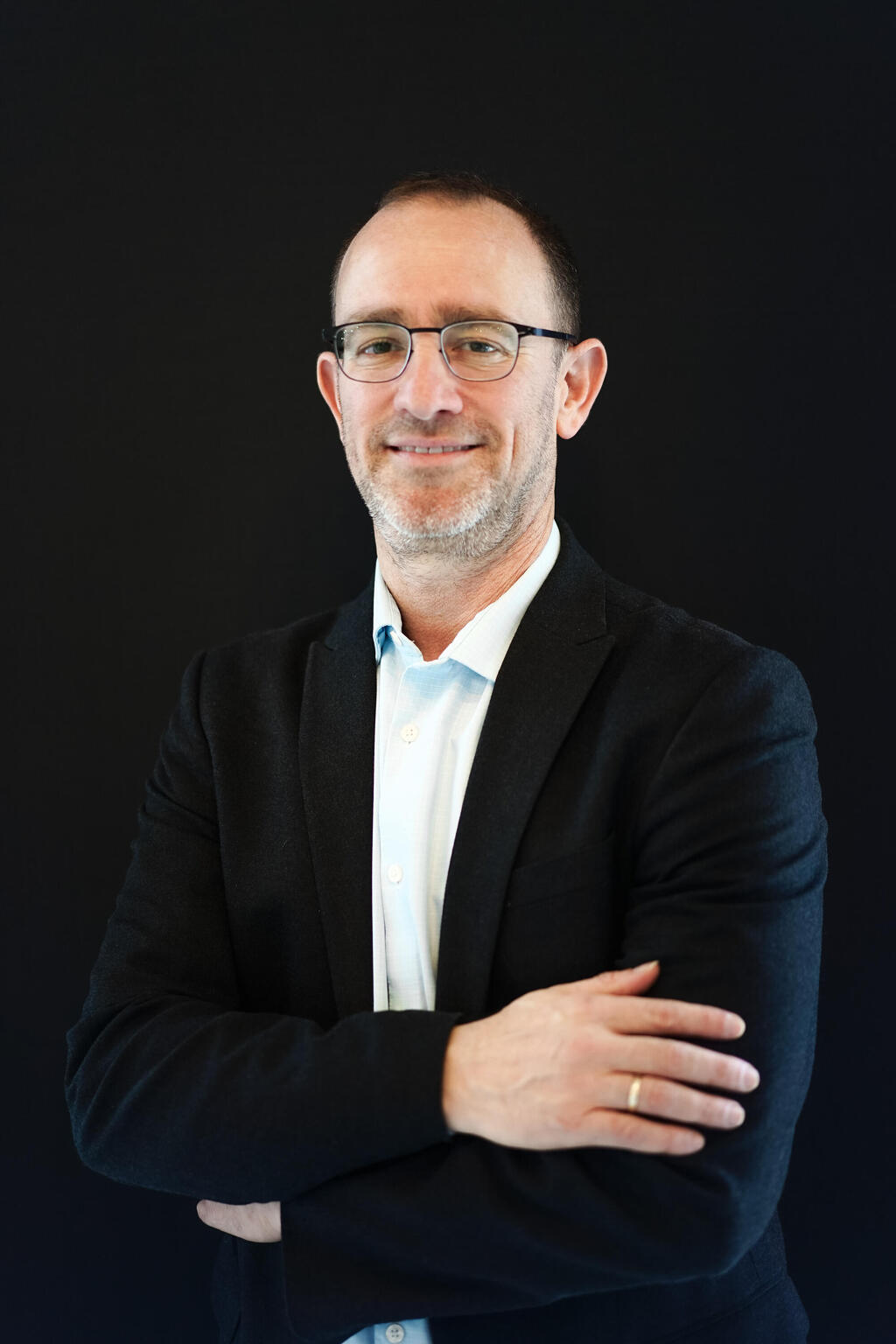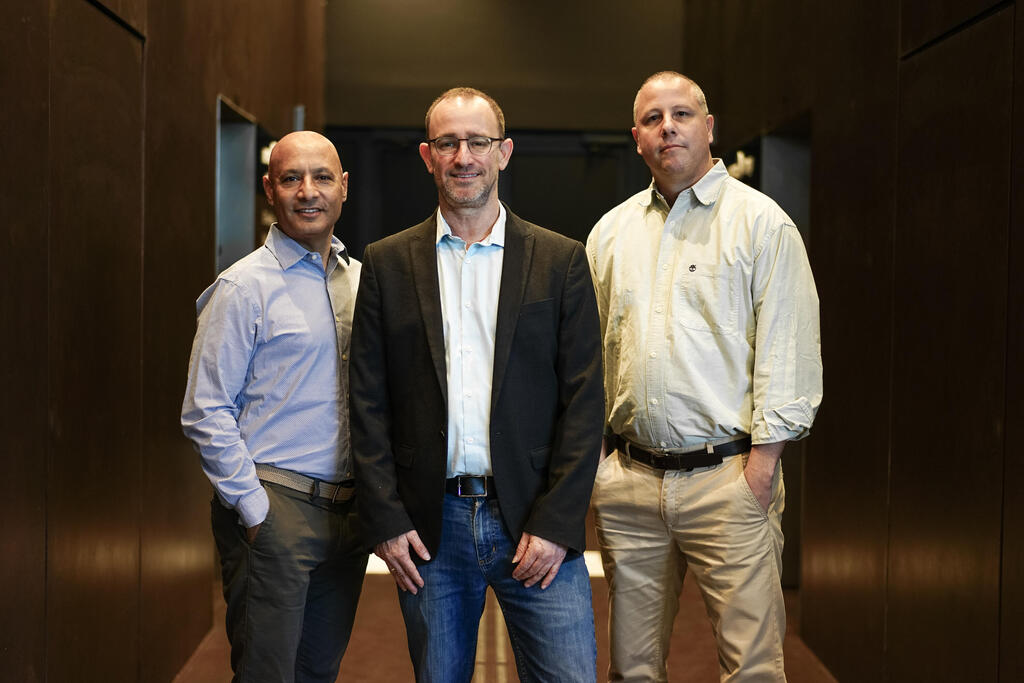Getting your Trinity Audio player ready...
Dr. Eran Feldhay’s transformative journey began with an unassuming routine blood test at the age of 42, nearly a decade ago, which revealed elevated blood sugar levels, diagnosing him with prediabetes. The discovery triggered a cascade of questions: “Why was this identified at such a relatively young age? What if I had uncovered this at 30? Could the condition have been entirely avoided?”
These reflections drove Dr. Feldhay—a trained physician and seasoned med-tech entrepreneur—to establish OpenDNA, an Israeli startup at the forefront of predictive medicine. OpenDNA combines advanced genomic analysis, clinical data, and artificial intelligence to predict, prevent, and even treat diseases rooted in genetic predispositions.
AI: A game-changer for medicine
Artificial intelligence is a transformative force, reshaping disciplines far beyond medicine. From economics and transportation to education, art, and even music, AI continues to alter the way humans perceive, interact with, and innovate in the world. Yet, in the realm of healthcare, AI signifies the dawn of a technological revolution, promising unprecedented advancements in disease detection, prevention, and treatment. Its applications span diverse domains, including medical imaging, personalized medicine, drug discovery, and big data management, revolutionizing not just patient care but entire healthcare systems.
“The concept of preventing genetically-driven diseases has existed for over two decades, ever since the first genome was sequenced,” explains Dr. Feldhay, now 52, married to Einat, and a father of three. “Even Yuval Noah Harari predicted in Sapiens that, in the future, doctors would utilize genetic data to preemptively treat or prevent heart attacks and cancer.”
From vision to innovation
Dr. Feldhay holds an MD from Tel Aviv University and an MBA from Ben-Gurion University. His career in medical technology is as impressive as it is varied. He previously worked at Medcon, which was eventually acquired by U.S.-based Maxson, and later managed a tech incubator in Misgav that specialized in early-stage medical device companies (Trendlines Medical).
In 2018, during his quest to find a genetic epidemiology expert, Dr. Feldhay attended a conference in Europe, where he met the late Professor Vangelis Evangelou, a globally-recognized authority in the field with numerous high-impact publications. “We built OpenDNA together,” recalls Dr. Feldhay. While Evangelou passed away a year and a half ago, his legacy lives on through the company’s groundbreaking work.
Dr. Feldhay is supported by two highly experienced partners. Erez Ornan, the company’s CTO, is a veteran software expert with over 25 years of experience in life sciences, who spearheaded the development of OpenDNA’s technological platform. Nir Gamliel, the company’s CBO based in the U.S., brings 25 years of expertise in business development, including multiple successful exits in the medical field.
The technology behind OpenDNA
At the heart of OpenDNA lies a patented, revolutionary technology that harnesses the power of AI to analyze vast datasets comprising millions of DNA bases. “We use artificial intelligence to distill the genetic data into a format that is clinically actionable and easy for physicians to understand,” explains Dr. Feldhay. “Family doctors are pressed for time—they have many patients and need to act quickly. Our system empowers them with clear, immediate insights.”
OpenDNA’s innovation integrates genetic testing, clinical information, and AI to predict, prevent, and treat a wide spectrum of genetically complex diseases. The platform processes millions of DNA bases, biomarkers, and clinical data points using a proprietary AI framework that incorporates machine learning and deep learning algorithms. These tools enable personalized solutions for the prediction, prevention, and treatment of diseases with strong genetic components, including cardiovascular disease, diabetes, cancer, osteoporosis, rheumatoid arthritis, kidney failure, autoimmune disorders, and neurological conditions.
The system has undergone rigorous validation, leveraging a dataset of over 500,000 patients and successfully completing two clinical trials, one of which was conducted in partnership with the prestigious Mayo Clinic, the top-ranked hospital network in the United States. Mayo Clinic has also invested in OpenDNA. “We’ve already seen real-world cases where our platform has improved patients’ risk profiles,” Dr. Feldhay shares. “For instance, we identified a patient at high risk of a heart attack, who then began preventive treatment after years of refusing medical intervention.”
Simplifying genetic testing for clinical use
The process begins with a simple genetic test, initiated under a physician’s recommendation. “The test is conducted using a cheek swab,” Dr. Feldhay explains. “The swab is sent to a genetic lab in Texas, where the data is processed, and we receive a comprehensive file containing the patient’s full genetic profile.” While patients or their private insurance typically cover the cost of the test, OpenDNA recently secured an insurance reimbursement code, enabling patients to claim coverage through their health insurance providers.
Despite operating with a lean team of just four employees, OpenDNA stands at a pivotal juncture in its growth. The company recently signed a distribution agreement with Maxson, a leading U.S. distributor, providing access to 250,000 clinics across the United States through a network of 1,000 sales representatives. “The U.S. healthcare market is the most prestigious and profitable globally,” notes Dr. Feldhay.
Get the Ynetnews app on your smartphone: Google Play: https://bit.ly/4eJ37pE | Apple App Store: https://bit.ly/3ZL7iNv
The company is also in the process of a highly successful crowdfunding campaign on the PipelBiz platform, which is slated to conclude on December 6, 2024. “We’ve already raised over $890,000, and our target is to reach around $1.39 million,” shares Dr. Feldhay. “Our ultimate goal is to establish OpenDNA as the gold standard in predictive medicine. Once we’ve solidified our presence in the U.S., we plan to expand internationally—to Israel, Europe, Japan, and the Far East. The vision is for this test to become a routine part of everyone’s healthcare.”
With its groundbreaking technology, strategic partnerships, and clear vision for the future, OpenDNA is poised to transform the global landscape of predictive medicine, making personalized healthcare a reality for millions.




